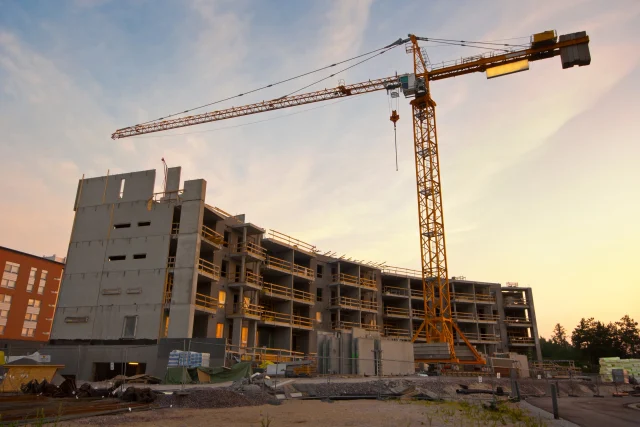
The construction sector’s response to Chancellor Rachel Reeves’s 2025 Autumn Budget was a mixture of cautious welcome and frustration. Industry bodies praised measures aimed at planning capacity and skills but warned that higher taxes, wage rises and a lack of support for retrofit risk blunting the Budget’s positive signals for housing and infrastructure.
Ministers scored a clear win with a commitment to boost planning capacity. The Federation of Master Builders (FMB) highlighted the Government’s pledge of £48 million over three years to strengthen planning departments — a move the FMB described as “welcome” given long-standing delays that hold up projects. At the same time the FMB flagged omissions: the Budget offered no new national retrofit strategy and the Energy Company Obligation (ECO) is being scrapped, leaving a gap in support for home upgrades.

Housebuilders welcomed one specific reversal. Neil Jefferson, chief executive of the Home Builders Federation (HBF), said it was “encouraging that the Chancellor has listened to industry concerns and chosen not to impose the 3000% increase in Landfill Tax consulted on earlier in the year,” but warned that even the revised measures still “represent an increase in tax on development when the economics of home building are already challenged.” The HBF urged ministers to tackle worsening scheme viability and a lack of support for potential homebuyers.
Merchants and suppliers voiced disappointment that the Budget lacked a strong growth stimulus for the sector. John Newcomb, CEO of the Builders Merchants Federation (BMF), criticised the package as “small incremental measures,” adding: “We needed to see a jumpstart to get the sector moving… The Budget has not done enough to bridge the gulf between the Government’s ambition to build 1.5 million new homes by July 2029, and the state of today’s market.”
Larger construction firms and professional services gave a more nuanced reading. David Young, chief executive of Bradfords Building Supplies, said: “Today’s Budget offers some positive signals for construction, particularly around housing ambition, skills and the transition to a lower-carbon economy. But it falls short of the reset the sector was hoping for. The real test will be how quickly planning is unblocked and investment flows into projects on the ground.”
Costs and labour remain dominant concerns. The Budget confirmed an increase in the National Living Wage (to £12.71 from April 2026) and froze income tax thresholds — measures that the FMB and BMF warned will squeeze margins for small firms and add pressure across the supply chain. Construction Management summarised the mood: with output fragile and workforce shortages persisting, “rising costs remain a major concern” that could push tender prices higher and curtail hiring.
Skills and apprenticeships were among the clearest positives. The Government announced free apprenticeship training for under-25s in small and medium-sized enterprises, a policy the FMB said should help firms recruit young talent without immediate training costs. Industry leaders urged prompt, practical rollout so apprenticeships translate quickly into on-site labour capacity.
Infrastructure certainty won plaudits but not complacency. Several commentators welcomed continued funding for major projects — such as the Lower Thames Crossing and other priority investments — because visible pipelines help the sector plan capacity and investment. James Corrigan, UK managing director for infrastructure at Turner & Townsend, described confirmed funding and pipeline clarity as “positive steps” but said government must now mobilise private investment to fill funding gaps.
Where the Budget disappointed most was its handling of retrofit and housing demand. Industry groups described the scrapping of ECO and the absence of a committed retrofit strategy as “missed opportunities” to mobilise skilled labour and long-term workstreams for SMEs. Meanwhile, housebuilders pointed to weak mortgage availability and affordability as barriers the Budget failed to address — constraints that blunt the impact of planning reforms and infrastructure spending on actual housing delivery.
What it means next: mixed but actionable. In the short term, firms will welcome reduced immediate risk from the most punitive tax proposals and the money for planning and skills. But many businesses say the Budget does not go far enough to fix structural problems: planning delays, project viability, labour shortages and the need for a national retrofit plan. If ministers and delivery bodies can translate the Budget’s commitments into faster planning decisions, clearer pipelines and targeted incentives for first-time buyers and retrofit work, industry confidence could recover. If not, firms warn the sector will remain fragile.







